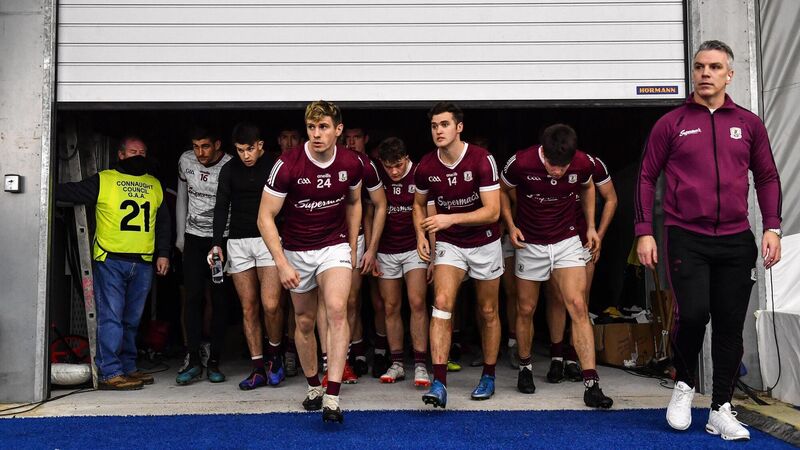Gary Brennan: Joyce demands high standards but can Galway get the mix right?

Out of the gate: Galway players and manager Padraic Joyce, right, need to find a balance between intensity and intelligence on Sunday. Picture: Sam Barnes/Sportsfile
I was fortunate enough to be part of the last International Rules Series played in 2017, and one incident from our preparation for that series sprung to mind this week.
The routine was usually to meet on Friday night and play a full trial game, followed by a skills session the following morning. At the end of one such session, Pádraic Joyce had us practising shooting – taking a mark, stepping back, and slotting a score over a defender standing on the mark.








